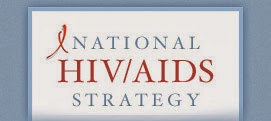On this beautiful Sunday morning, where if you are
able to read this, you are more fortunate than nearly ¾ of the world’s nearly
7.3 billion people. CELEBRATE LIFE!
It is ironic this concept of letting go of “old
things.” Things we believe we will use
or we absolutely can’t live without. The
clothes in our closets that seem to continue to “shrink” from some evil plot of
our laundering process that we can’t let go of because we believe “that’s a
great incentive for losing the weight!”
Instead of “images for incentive” they become “reminders of our failure,”
so we push them as far back into the closet as possible. Sometimes, to make room in our “closet,” we
put them in storage in bags, boxes, and expensive containers; baggage, hidden,
but not forgotten. LET IT GO!
Garages filled to capacity with “stuff” that it no
longer serves as a convenient place for our vehicles, providing a dry transition
from the car to the house on these consistently rainy days. Instead, it continues to grow, not only with
the “things” we cannot part with, because you never know when you will need
that “stuff” for school art projects, birthday celebrations, and when you get a
chance to “slow down.” Soon we no longer
leave the house through the garage, but instead choose the front door. The
accumulation of our “stuff” becomes another reminder of what we didn't do;
baggage, hidden, but not forgotten. LET IT GO!
I share these two very familiar and visible examples
because either or both will resonate with most people. The stories will elicit some laughter,
perhaps some pain, because they are relatable.
They occupy space on our “To-Do”
lists or “Honey-Do” reminders. Any successful attempt to “sort it out”
starts with a decision of “What am I going to do with it, once I start?”
In my work with clients, getting an
understanding of why they “still hold onto the stuff” is absolutely critical in
walking with them through any sorting process. “What
is your criteria to keep it?” Responses
such as “Well I know I will lose the weight, so it’s a waste of money to throw
these perfectly good clothes away.” Sometimes we need to be reminded that the
reasons to justify our behavior, logical perhaps, simply are not working. “Imagine how good it will feel for you
knowing these beautiful clothes are keeping others warm or allowing someone
else to perhaps feel good about themselves.” Those statements create a powerful reframe of addressing the resistance. LET IT GO!
Our willingness to hold on to old habits, past
hurts, pains, and resentments at the cost of our health and happiness is much
like these examples. Our belief that
somehow hanging on to the “would haves”
and “should haves,” will result in something
beneficial for us and often times it simply represents such deep hurt because of betrayal, "giving up and letting go" of that hurt becomes equated to "they won!"
Our willingness to assess the “state of our baggage,” starts with an acknowledgment, that perhaps
we might have some! We all have some;
perhaps more than we want to consider.
It is difficult to move through life with our individual socialization
and experiences and not be impacted by trauma or hurt or disappointment. Making meaning of these events and our
ability to move beyond the pain of disappointment and regret (ours and others)
become critical in understanding why it is difficult to “LET IT GO!”
The reality of this thing called life can be framed
in an understanding of choices. Not in
choices of “I didn’t make a choice to be assaulted” or “I
didn’t make a choice to have my partner betray me” or “It
wasn’t my choice that my parents kicked me out of my home because I came out to
them,” or “It wasn’t my choice that my child was killed before their 16th
birthday.” The only choice we
have control of is our response to each of life's events.
No
one can take away that choice from us!
We can choose to be bitter or better!
We can choose joy or sorrow!
We can choose to forgive or not!
We can choose to be angry or resilient!
We can choose to live or die!
Understanding the reality of these choices are
critical in deciding when and how we begin to “unpack our baggage.”
We
cannot fully experience, the joy of living, holding tightly to the pain of the
past.
Our lives must account for something beyond the space we've occupied and resources we've consumed.
A lived life, free from the guilt and shame of the past and free from the
anxiety of the future, is a “liberated
life,” mindful of the power of being present. It is impossible to expend our energy in the
past and/or in the future and still be present.
We get to choose!
I have been reminded many times over the last few
weeks that life is a very fragile and temporary experience. There are no guarantees, no do-overs, and no
timeouts. Living and loving is my
choice, every day. Making that journey with as little baggage as possible is
important to me in that choice.
Special thanks to JW for your inspiration!
Liberate
your life. LET IT GO! #baggagefree
Next:
Unpacking Baggage: Part
II – Our Lives as “Emotional Hoarders”













